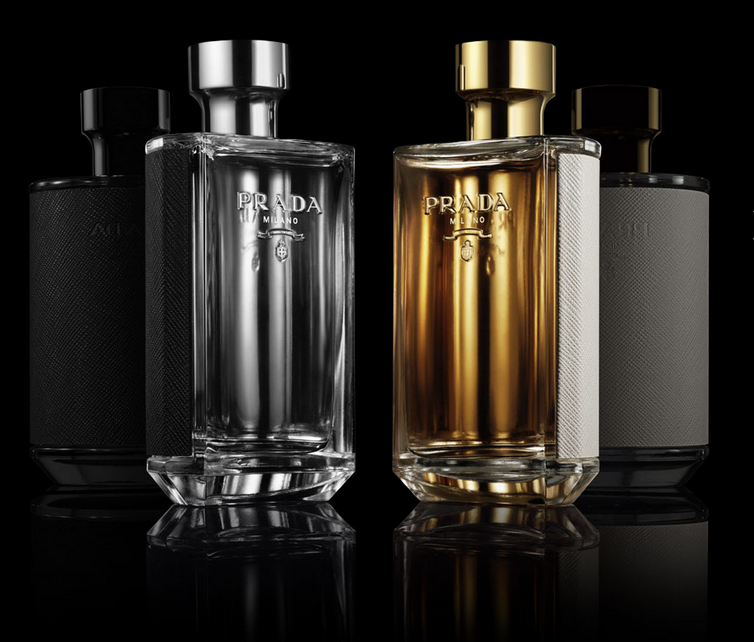Jul 23, 2018
Exclusive: Prada ends perfume license with Puig
Jul 23, 2018
Prada has decided against renewing its perfume license with Puig in a major setback for the Spanish perfume company, according to industry sources with first-hand knowledge of the matter. The decision marks the second time a mega fashion brand has parted ways with Puig this year as it comes after Valentino ended its contract in May with Puig to work instead with French cosmetics giant L’Oréal.

“One possible explanation for why Prada did not renew the license with Puig is that they were disappointed by the level of sales,” one of the sources said. He estimated that annual revenues generated by the Prada perfume business stood in the region of 100 million euros, significantly below the 200-million-euro target Puig gave the press when it won the Prada license in 2003.
L’Oréal and US rival Coty, which owns the perfume license to Miu Miu (Prada’s more youth-orientated collection) since 2013, will be frontrunners to snatch the Prada license from Puig, the sources said. Prada has time to review bids since its license with Puig runs until the end of next year, they added.
Prada and Coty declined to comment while L’Oréal and Puig did not respond to requests for comment.
Valentino was estimated to contribute around 70 million euros in annual sales to Puig. The loss of Prada, fresh on the heels of Valentino, will dig a bigger hole in Puig’s revenues. It will also make it harder for the family-controlled Spanish company to reach its 3-billion-euro-target in annual sales by 2025. Puig, (whose name is pronounced “pooch,”) last year generated 1.94 billion euros in net revenues, up 8.6 percent on a like-for-like basis. It said in its 2017 results statement that “the performance of Prada in its principal target markets also helped achieve excellent overall fragrance sales.”
In the same statement, Puig said that it seeks to position itself as a “company with a talent for creating unique experiences that set consumers dreaming.” However, the loss of Prada and Valentino back-to-back will raise questions about the Spanish company’s ability to manage big brands’ sensibility and concern about how well the image of a perfume and beauty product fits with their carefully calibrated fashion image and their new-found ambitions to seduce millennials.
The news is a double blow to Puig as there are not that many fashion brands in the world which are the size of Valentino and Prada, have such notoriety and fashion authority and rely on specialists to develop their fragrance and beauty business.

Typically, when a fashion company sells a license to Puig, L’Oréal, Coty or Interparfums or any other specialized company, it expects the licensee to invest in the development, production, marketing and distribution of its fragrances and beauty products. The fragrance maker logs the sales in its books and pays royalties to the fashion brand every year.
How much of a say a fashion brand and its creative teams have over the image of a perfume or beauty products is often a point of contention between the licensee and the licensor. The licensee seeks to maximize sales and make a big bang with new launches in a highly competitive market (around 2,500 new perfumes inundate the market every year). Meanwhile, the licensor, or the fashion brand, is concerned about how any new perfume or beauty product will affect its image in the short to longer term. Some perfume and beauty products stay in the market for decades.
Inspired by Dior and Chanel, both of which own their fashion and perfume businesses, Burberry was so keen to control its image that it bought back its fragrance business from France’s Interparfums in 2012, paying sizeable penalties - only to throw in the towel five years later, sell back the fragrance and beauty business to Coty and destroy more than 10 million pounds sterling worth of fragrance and beauty stock as per its last annual report.
Last month, Puig took a majority stake in Dries van Noten making no secret of its ambition to develop the fashion brand’s perfume and beauty products. However, it is not clear how much power the designer will have over such diversification. Editions de Parfums Frederic Malle, now part of Estee Lauder, put out a perfume named Dries van Noten in 2013 which had mixed commercial success.
Puig owns the following fashion houses: Nina Ricci, Carolina Herrera, Jean Paul Gaultier and Paco Rabanne. But the Spanish group’s revenues from ready-to-wear and couture are estimated to be less than 10 percent of total annual sales. In the past year, the company has reinforced its perfume executives’ power over those running fashion operations. In April, it promoted José Manuel Albesa, a perfume industry veteran, as president of brands, markets and operations after giving him control over the company’s fashion brands a year ago following the departure of Ralph Toledano as president of Puig Fashion. Industry insiders say Puig Chief Executive Marc Puig, grandson of the founder, is grooming Albesa to succeed him. Marc Puig could be the last family member to run the company and leave as early as 2020, they say. By then, Puig’s Prada perfume license will have expired as well.
Copyright © 2024 FashionNetwork.com All rights reserved.


























